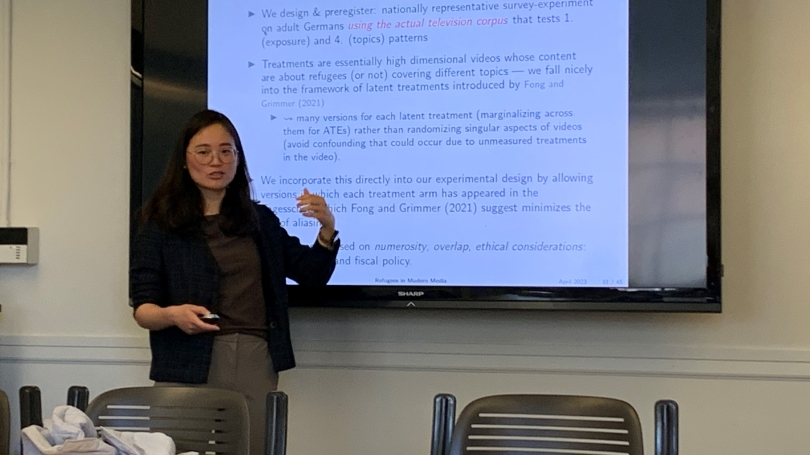
- Undergraduate
- Research
- About the Program
- News & Events
- People
Back to Top Nav
Back to Top Nav
Back to Top Nav
Back to Top Nav
The Program in Quantitative Social Science and the Department of Government hosted Assistant Professor Adeline Lo of the Department of Political Science at the University of Wisconsin-Madison on Friday, April 7, 2023. The title of her talk was, "Refugees in Modern Media."
Abstract: The effects of refugee migration permeates most aspects of a recipient society, not least native inclusionary attitudes and behaviors towards refugees. While recent research has emphasized measuring the extent to which direct exposure to refugees affects inclusion, much less is known about the more frequent type of refugee exposure natives experience: seeing refugees through media representation. This project establishes key patterns to how much and in what ways modern media represents refugee stories, how this has changed over time, and explores how major shifts in the ways refugee stories have changed affect native inclusion. We collect and study a unique television corpus from 2014-2019 covering the daily universe of a major public broadcast news show in Germany, the Tagesschau, throughout the period leading up to and following the globally renowned "Open Door" announcement in the Syrian refugee crisis, using image, text and sentiment analyses. Our findings indicate that the likelihood of Germans watching Tagesschau being exposed to a refugee story has increased over this time period and that such stories have increasingly been told within the topic of criminal justice. We posit a theory of refugee media effects through agenda-setting, topical content, and emotional valence channels and design and conduct a German nationally representative randomized survey experiment to test them. Experimental results suggest evidence of a citizen problem-solving mindset when Germans are shown refugee stories --- respondents are more likely to behave inclusively (increase in donation towards a refugee NGO and prioritize issues presented around refugee stories) but feel less warm (cooler thermometer ratings and further social distance) towards refugees.